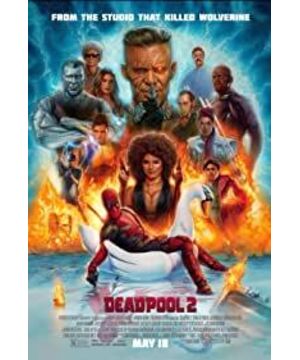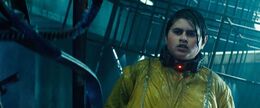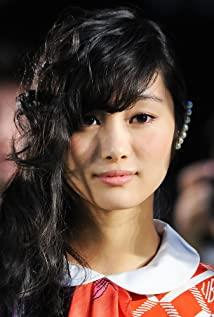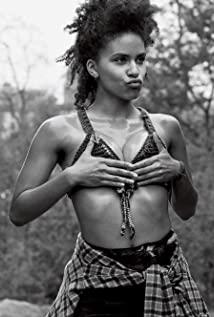After watching "Deadpool 2: I Love My Home", in addition to the protagonist Deadpool (Ryan Reynolds)'s constant mouthing and the same BGM feeling, the drama involved several stalks about movies and culture also made my eyes shine. This article is only intended to share some of the highlights and deficiencies in the film, and does not seek to make a comprehensive review of all-encompassing, just to provide friends with a new perspective of watching the film (minor spoiler warning). " Deadpool 2: I love my family " (2018) continued the first " Deadpool " (2016) a unique narrative style, the main character Deadpool Deadpool can interpret their own stories at the same time, the audience can keep the chat exchanges The state breaks the traditional "fourth wall" of film and theater art, and provides information learned from the perspective of screenwriters and actors in addition to the plot of the story.
The Fourth Wall
The fourth wall refers to a fictitious wall located at the entrance of the stage in the traditional three-wall mirror-framed stage, which separates the actors from the audience and makes the actors forget the existence of the audience (Bell 2008). Under such theater rules, actors and actresses cannot interact with the audience. Film actors have to forget the existence of cameras. Looking at the camera is a taboo for actors. Breaking the fourth wall is a post-modern art form that directly speaks or compliments the audience in a film, drama or TV program through the lens to achieve dramatic and comedic effects (Abelman 1998). Compared with the first film, which directly said hello to the camera and "broken the wall" without warning, this film uses a more natural introduction to an audience, listening to Deadpool telling the story, while performing plot and narration. The exchange of techniques is to inherit the "Break the Wall" style of the "Deadpool" movie.
The first scene in the trailer of "Deadpool 2" pays tribute to the scene where grandpa tells a story to his grandson (Fred Savage) in The Princess Bride (1987) . After 31 years, actor Fred once again sat in the room with the same set to listen to Ryan Reynolds talking about Once Upon A Deadpool (adapted from the fairy tale classic opening scene Once upon a time, and the American drama Once Upon a Time of the same name ).
Fridging or Women in the Refrigerators
When the plot progressed to the death of Deadpool’s girlfriend Vanessa, the hero was blaming himself, desperately desperate to die, Deadpool mentioned the word “Fridging” when telling Fred, admitting that the plot of the heroine’s tragic death had fallen into it. The tragic ending of female characters in superhero movies. The concept of "Fridging" was first proposed by Gail Samone in 1999. She founded a website called "Women in the Refrigerators", which listed more than 90 superhero comics, which involved female characters being brutally killed, Injury, weaken abilities, and most of the functions in the plot are to provide reasons and opportunities for heroes such as growth, awakening, and revenge for the male protagonist. The term comes from the 54th episode of the "Green Lantern" comic. The protagonist Kyle Rayner returned to the apartment to find that his girlfriend Alexandra DeWitt was mercilessly killed by the villain Major Force and stuffed into the refrigerator (Simone 1999). There are too many works with similar sexism suspects, such as Batman: The Dark Knight (2008) , Wolverine X-Men Origins: Wolverine (2009) , Die Hard (1988) (if you are interested ) Read Samone’s list of super-English comics The Original List in detail ).
In "Deadpool 2", for fringing Vanessa's feminist criticism, the two screenwriters Rhett Reese and Paul Wernick said that they had never heard of the metaphor Women in the Refrigerators when writing the script, and Vanessa also appeared in the ending egg. It seems to be resurrected, but using the death of female characters in the plot to create setbacks and transformations for the male protagonist is indeed difficult to wash away the suspicion of fringing. It is not the protagonist's self-deprecation of breaking the fourth wall that can bring it through.
A little criticism and thinking
Although such self-referential criticism and complaints brought a novel look and feel to the audience and spoke out about their own problems, they failed to find a reasonable explanation for self-justification and excuse, even the protagonist. Choose to bluntly admit that this is the result of lazy writing by the screenwriter. When Deadpool talked about his body being torn by the waist and growing a child-like lower body, Fred asked—Does Deadpool's self-healing ability only apply to the upper body? Or does it mean that the lower body of Deadpool in another place can also heal itself and become a second Deadpool? Such doubts also made the audience think about whether there are loopholes in the character setting, but unfortunately the movie failed to give a reasonable answer.
Just as last year, Disney animation fire Wreck-It Ralph 2: row internet Ralph Breaks the Internet (2018) official tucao princess stems, as in China trailer released Disney classic response to criticism of the image of the princess, "we are not taken for granted Think that your troubles can be resolved because of the appearance of a tall and strong man?" Vanellope's affirmative answer made the princesses immediately identify with her and believe that she is also a true Disney princess. Such a direct response to the long-term feminist critics’ criticism of Disney princess films undoubtedly made the audience shine, but after self-deprecating, the transformation of the princess image in the film seemed very far-fetched and rigid. In order to highlight the unique role of women and subvert the stereotype of waiting to be redeemed, the plot is designed as Bai Xue knits clothes with poisonous apples and sleeping beauty, and the princesses show their magical powers to rescue the drama of the King of Destruction. It is still difficult for me to force the feminism of Disney. Doctrines come to buy it for nothing.
I personally think that one of the highlights of "Deadpool 2" is the protagonist's self-reflectiveness and self-criticism. In the film, he mentioned gender neutrality many times. He expressed dissatisfaction with the name X-Men and consciously called it X-people; he also had a sense of racial equality, when Cable was irritable When the Indian driver's brother Dopinder was asked to turn off the Indian-style music in his car, he opened his mouth again, criticizing Cable for racial discrimination. Including the above-mentioned self-reflection fringing heroine's plot setting, Deadpool is a character that breaks the gap between the actors and the audience, and can reflect and criticize his own performances and works from the perspective of the audience. This is so advanced. The sexual and post-modern setting really shines.
Finally, I will cite an example of Deadpool "Break the Wall" at the end. Both "Deadpool" have this proud and cool line: "Cue the music!" Perform a good show.
It’s the first time to write a long film review. If you have any omissions, you are welcome to correct me, and you are also welcome to comment and exchange.
Friends who are interested are welcome to follow me and my friend’s public account EffervescentLab (search for dysjunction), and share some of our thoughts about life, culture, and society from time to time.
【references】:
Abelman, Robert, Reaching a critical mass: a critical analysis of television entertainment, Mahwah, NJ: L. Erlbaum Associates: 8–11, 1998.
Bell, Elizabeth S., Theories of Performance, Los Angeles: Sage: 203, 2008.
Rameno,Aja (May 2018) "'Fridging', one of storytelling's most noxious tropes, explained" https://www.vox.com/2018/5/24/17384064/deadpool-vanessa-fridging-women-refrigerators-comics -trope .Retrieved January 28, 2019.
Simone, Gail (March 1999). "Women in Refrigerators" . LBY3. Retrieved January 28, 2019.
More information on Women in Refrigerators (Tropes vs. Women) (Ladder required)
View more about Deadpool 2 reviews











